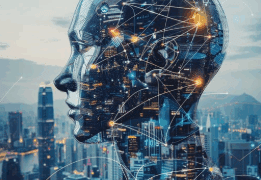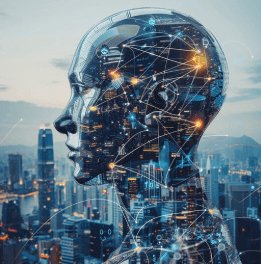Advancements and Breakthroughs in AI
Artificial Intelligence (AI) continues to reshape science, industry, and everyday life at an unprecedented pace. September 2025 marks another milestone in this journey, with new breakthroughs and real-world adoption.
AI for Science
-
Protein folding & brain mapping: Tools like AlphaFold are pushing the boundaries of biological research.
-
Drug discovery: AI is helping design compounds to fight drug-resistant bacteria and improve vaccine strain selection.
-
Chemical predictions: AI systems can model complex chemical reactions while adhering to physical laws.
AI in Everyday Life
AI has moved beyond research labs into our daily routines:
-
AI-enabled medical devices for better diagnostics
-
Self-driving cars making urban mobility safer
-
Personalized recommendations on platforms like e-commerce and streaming apps
-
Smart home devices simplifying daily tasks
Agentic AI: The Rise of Autonomous Agents
Agentic AI represents the next frontier — AI systems that act independently, adapt in real time, and manage tasks without constant human input.
-
Automating business workflows
-
Managing large-scale manufacturing
-
Assisting in eldercare and household support
Multimodal AI
Modern AI can now process text, audio, images, and video together, enabling:
-
Better content search and discovery
-
Human-robot collaboration in industrial settings
-
More intuitive user experiences
AI in Specific Industries
-
Healthcare: Personalized medicine, predictive analytics, and remote monitoring via wearables are revolutionizing patient care.
-
Steel Industry: AI optimizes the value chain, supports green transition financing, and enhances raw material efficiency.
-
Finance: Banks and institutions use AI to modernize credit risk models and streamline efficiency.
Concerns and Challenges
While AI adoption grows, concerns also rise:
-
Ethical AI & Bias: Ensuring fairness, accountability, and transparency.
-
Cybersecurity Threats: Rise of AI-driven malware and deepfakes.
-
Employment Impact: Automation could replace jobs, demanding reskilling.
-
Misinformation: Hyper-realistic AI-generated content fueling fake news.
-
Regulation: Governments working on frameworks to govern safe AI use.
Key Players and Initiatives
-
Big Tech: Google, Microsoft, Meta, OpenAI, and others leading AI innovation.
-
Research Collaborations: Tech firms and universities driving scientific progress.
-
Funding Boom: AI startups like Mistral AI and Cohere receiving major investments.
-
Government Role: National AI strategies, infrastructure investments, and policy frameworks being rolled out.
Other Notable Updates
-
Copyright lawsuits around AI training data have led to high-profile settlements.
-
AI education and literacy programs are expanding worldwide to prepare for an AI-driven future.
Conclusion
The AI landscape in 2025 is defined by rapid scientific breakthroughs, industry-wide adoption, and emerging regulatory frameworks. While challenges around ethics, misinformation, and employment remain, the transformative potential of AI across sectors makes it one of the most important technologies shaping the future.




















